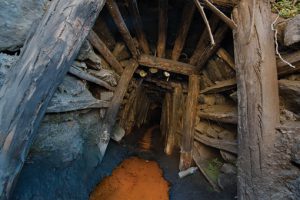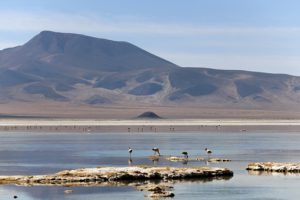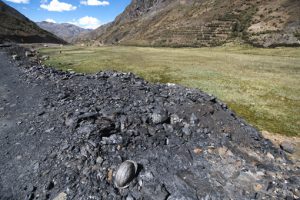The Next Step: Latin America’s Growing Economies
Latin America has bounced back economically in the past decade. Between 2002 and 2012, the region has seen strong and stable growth, low inflation and improved economic fundamentals. As a result, the weight of the region in global economic output increased from about 6 percent in the 1990s to 8 percent in 2012. With that … Read more

Latin America Goes Global
On January 26 and 27, representatives from 61 nations, including 43 heads of state, gathered in Santiago, Chile for the 7th bi-regional summit of EU-LAC Heads of State and Government. It was one of the largest summits ever held in South America, and the first time that the Community of Latin American and Caribbean States … Read more

Chile’s Pragmatic Middle-Class Voter
Chile’s middle class has always played a key role in the country’s politics. In the first four presidential elections after the 1989 democratic transition, middle-class voters were a decisive factor in the victories of center-left Concertación candidates Patricio Aylwin, Eduardo Frei, Ricardo Lagos, and Michelle Bachelet. By 2009, however, Chile’s middle class turned away from … Read more

Avoiding the Resource Curse
A country’s ownership of rich natural resources is not necessarily a blessing. It presents a set of extraordinary challenges for policy makers. Bonanzas in foreign exchange all too easily create overvaluation and undermine efforts at economic diversification. At the socio-political level, mineral exploitation provokes intractable social conflicts, while the prospect of environmental contamination is ever-present. … Read more

Illegal Mining
Propelled by the skyrocketing global price of minerals, illegal mining has recently come into focus as a major environmental and social concern. Images of pristine rainforest scarred by clear-cuts, toxic mercury released into rivers and the air, and accounts of human trafficking, child labor and prostitution in remote mining encampments all point to the need … Read more

Resource Nationalism: Beyond Ideology
Latin America’s political Left has displayed symptoms of bipolarity for much of the past decade. An early purveyor of this diagnosis was Jorge Castañeda, former Mexican foreign secretary (2001–2003), who in 2004 identified what he called “two Lefts” in a piece for Project Syndicate. One Left had “truly socialist and progressive roots” that was “following … Read more

Crossing Boundaries
The extraction of oil, natural gas and minerals is transforming Latin America. The conflicts that accompany this extraction have become part of the social and political landscape in much of the region. Some of this conflict has been violent. In June 2009, a confrontation between protestors and police in Bagua, Peru left at least 43 … Read more
Will Old Age and Bad Health Bankrupt the Americas?
This year, about 75 percent of those who die in the Americas will die of an NCD.1 Over 33 percent of these NCD deaths will occur in people under age 70 and thus are considered premature. Some 25 percent of all NCD deaths will occur among working-age people.2 Although the four main NCDs pose the … Read more

The Middle Class Market Boom
*Watch an AQ Q&A interview with María-Eugenia Boza. There’s been an amazing revolution in the global commercial landscape. The developing world has emerged as one of the most promising wholesale and retail markets. Many of these regions in the past were valued primarily as a source of cheap labor—often in maquilas and sweatshops. Today they … Read more
Double Profit: Financing Consumers
Across Latin America, retailers, telecommunications companies and shopping malls are reaping the benefits of a growing middle class that is able to shop more and spend more. According to McKinsey & Company, Latin America is one of the largest emerging markets in the world with a combined GDP of $3.2 trillion, boasting triple the GDP … Read more

Workers of Polar Unite…In Defense of Capitalism!
Over the past decade, Venezuelan President Hugo Chávez has expropriated some 1,000 firms of all sizes, both foreign-owned and domestically held. Yet one very large and highly visible Venezuelan company remains standing: Empresas Polar. The family-owned Venezuelan food and beverage sector–focused company survived by drawing on the support of workers, consumers and communities, managing to … Read more

Learning the Ropes
In the past decade, China’s expanding engagement with Latin America has captivated the attention of the region and the United States. Most of the focus, however, has been on whether the new trade and investment is good for the region’s long-term development, and whether particular Chinese activities, such as military sales and loans to Venezuela … Read more

The Exaggerated Death of the Middle Class
Mark Twain, upon reading his obituary in the New York Journal, famously quipped that the reports of his death were greatly exaggerated. The same could be said today of reports from the scholarly world, the media and even the White House about the shrinking of the middle class. Here’s why. The most easily obtained income … Read more

Higher Education in Chile
The quality of Chile’s universities is well known across the Americas. Two of these—Pontificia Universidad Católica de ChileUniversidad de Chile—rank in the top five of the 2011 U.S. News and World Report list of the 100 best schools in the region. Unfortunately, high-quality education comes at a high cost. Chile has the second most expensive … Read more
Women in Robes
For the first time in United States history, three of the nine justices sitting on the Supreme Court are women. About 33 percent of state and federal court judges in the U.S. are women, slightly higher than the global average of 27 percent. Why does this matter? Scores of empirical studies have attempted to determine … Read more


